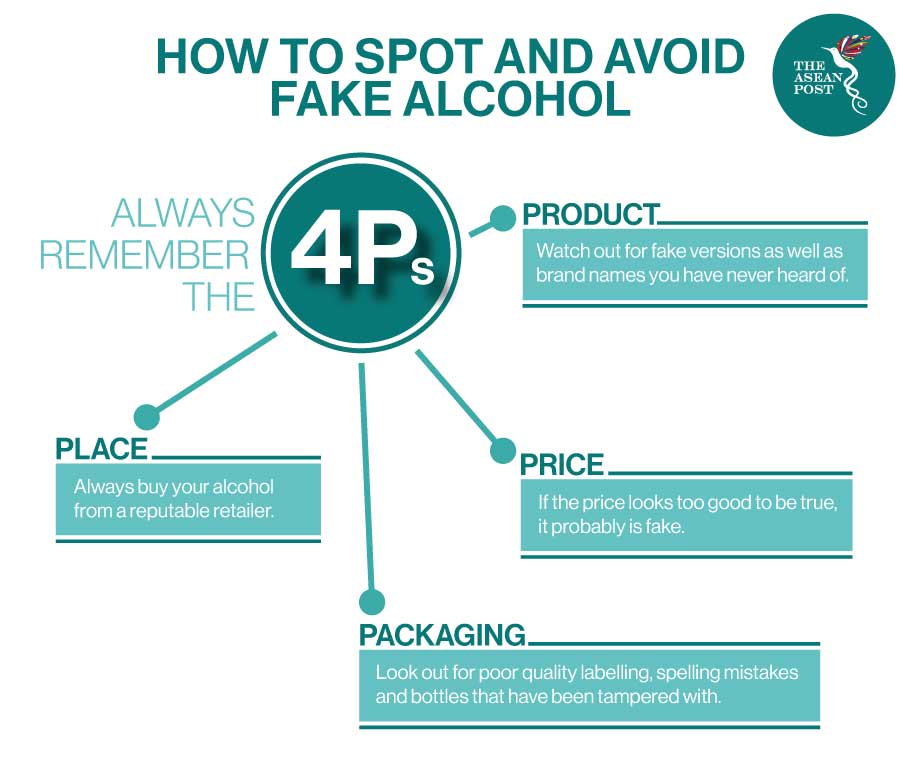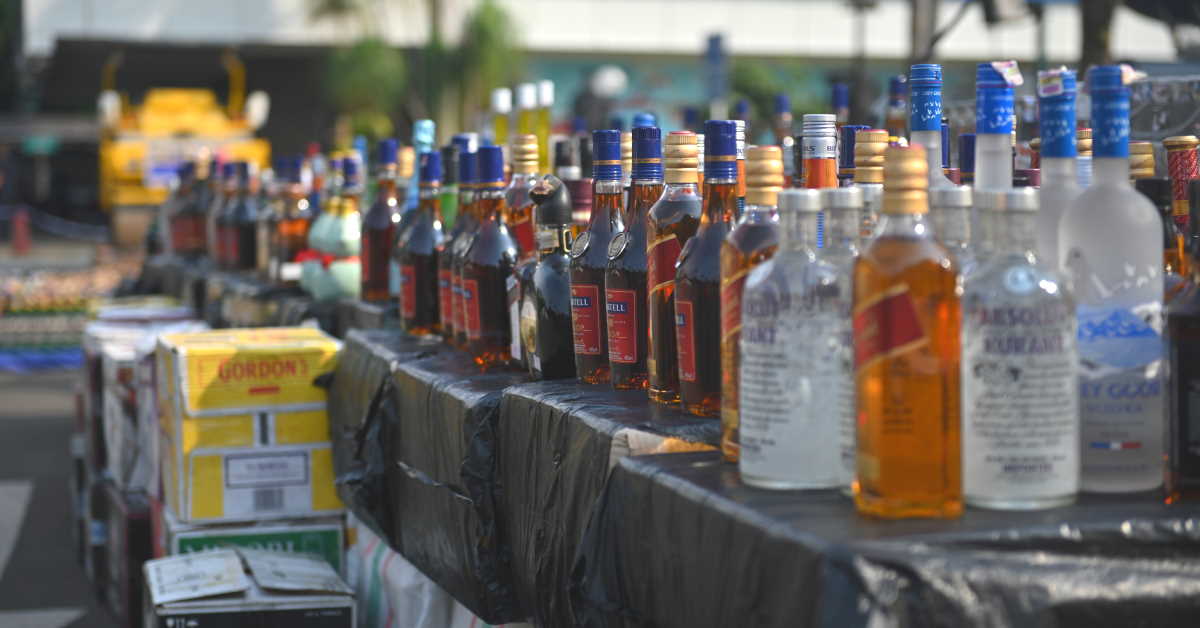In recent months, we have increasingly heard stories of counterfeit or sub-quality face masks, medicines and sanitisers during the pandemic.
Fake goods are indeed putting lives in danger. Other than the aforementioned products – countries across the world such as those in Southeast Asia have also long battled with the problem of fake alcohol.
In November 2019, a 63-year-old Malaysian man nicknamed the “King of fake liquor” was arrested in Thailand for producing counterfeit foreign whisky for more than 30 years. In Cambodia in the same month, several thousand bottles of booze, along with counterfeit packaging including labels and boxes were confiscated. According to media reports, Cambodia has earned a reputation for producing fake cigarettes, beer and perfumes.
Fake or illegally produced alcohol is often made in unlicensed distilleries. Fake alcohol could even be packaged to look like established, legally produced brands. Some illicit alcohol manufacturers would gather used bottles of original brands and fill them with fake and perhaps harmful liquor.
The consumption of bootleg booze is oftentimes fatal.
Fake Alcohol In Southeast Asia
Properly produced and certified alcoholic beverages are made with ethanol – alcohol that’s safe to drink in moderation. But fake alcoholic drinks are produced using other cheaper forms of alcohol which can have a serious impact on one’s health.
The fake ones are typically cheap, illegal and sometimes – homemade. Fake alcohol can contain poisonous chemicals used in antifreeze and nail polish remover.
In ASEAN member states such as Malaysia, Indonesia and Vietnam, alcoholic beverages are highly taxed making imported liquors expensive.
In 2015, Indonesia decided to ban the sale of alcohol at convenience stores and mini-marts, which then created a larger black market for alcohol. According to the Center for Indonesian Policy Studies, “with alcohol being expensive and difficult to obtain, Indonesians drink five times more unrecorded than legally purchased and distributed liquor.”
In Vietnam, some bar owners sell counterfeit alcohol in the guise of original products to make a lot of money. The illegally produced alcohol that is filled in the bottles is likely a mixture of ethanol and methanol, or one of any number of other chemicals.

Methanol Poisoning
In 2018, Indonesia experienced one of the worst cases of methanol poisoning leaving more than 100 people dead and over 160 in hospitals in a span of just one month. The victims were reported to have drunk fake alcohol containing fatal amounts of methanol.
Methanol is a by-product of the fermentation process in making alcohol. It’s meant to burn off naturally when alcohol is distilled, but a mistake made during this process may leave it present in the final product. In order to cut costs and speed up production targets, illegal manufacturers and home breweries sometimes fail to sufficiently heat the alcohol or even forgo the heating process entirely – leaving the poisonous methanol behind.
Methanol is highly dangerous as it is colourless and odourless which makes it difficult for amateurs to distinguish the mixture from an original brew. Even a small amount of methanol can be toxic and symptoms of poisoning do not appear immediately – taking 12 to 24 hours for the effects to show.
Methanol poisoning can cause confusion, dizziness, drowsiness, headaches and the inability to coordinate muscle movements. The symptoms are sometimes confused by victims as a hangover. According to the United States (US) Centers for Disease Control (CDC), methanol poisoning can prompt nausea, vomiting and heart or respiratory failure.
Between 2008 and 2013, 300 people died from consuming illicit liquor in Indonesia, according to official statistics. And between 2014 and 2018, the figure rose to 500. In Malaysia, around September 2018, 45 people died after consuming toxic alcohol. In May and June of 2019, at least 17 more joined the death toll, and one person was reported to have become blind.
P David Marshel, a municipal councillor in Malaysia’s state of Penang told the media that Malaysia is the “biggest market” for counterfeit liquor, adding that “they want to get the cheapest (one), as long as they can drink and get high.” He has spearheaded a movement against counterfeit alcohol for a few years now.
Official reports and figures of those who died and suffered from the effects of methanol poisoning in fake alcohol are difficult to obtain as it is sometimes misdiagnosed as something else.
Bootleg booze has been a problem for many years in Southeast Asia. Nevertheless, not many understand the implications and dangers of fake alcohol to this day.
Related Articles:
